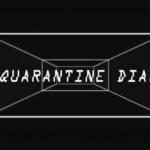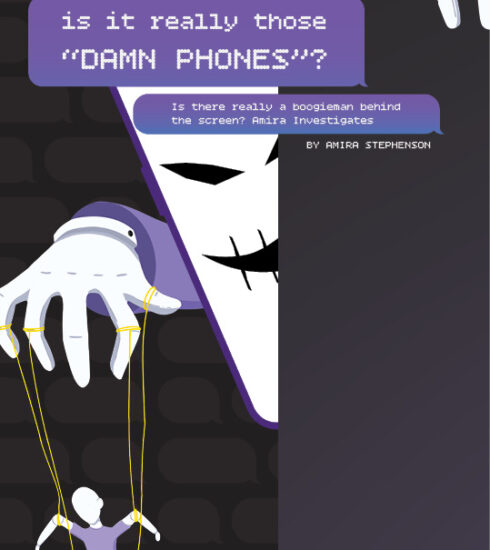Nexus Fixes: Road Safety
I’m 20 years old and I’ve been driving for around 4 years now, in this short time I’ve been lucky enough to drive all sorts of cars all over the country, up and down both Islands, in whips varying from my little 1.5L turbo-diesel Hyundai Getz, to a couple of Porsche 911’s. I’ve always enjoyed driving or racing anything on two or four wheels. All of my Xbox games are racing games, and I used to race mountain bikes at a national level before I started driving four wheels. I picked up driving pretty damn quickly thanks to the transferable skills from my sport on two wheels. Things such as braking before you begin to turn, not accelerating until you’ve fully straightened up so you don’t understeer/oversteer, looking far ahead into the turn, hand eye coordination etc. The list of similar skills is actually pretty long, but that’s besides the point. The point I’m trying to get across in these couple sentences is that I’m lucky to have gained skills from previous activities, and had a good role model to follow (my old man, who has been a car fanatic his entire life), which led to me being a skilled driver on the windy roads of New Zealand fairly quickly.
Given some of the absolute obscenities I have seen on our open roads, such as me being cut off at the end of a passing lane, people being on the wrong side of a passing lane, overtakes on blind corners, tailgating, people who can’t stay in their lane, it has made me wonder how we can give everyone a good education on becoming a good driver.
In 2019, 353 people died on our roads, 261 of those people lost their lives on an open road, not in an urban area. In recent years the Government has been implementing lower speed limits up and down the country in some places with high crash rates, and for some places I think that it’s justifiable in places like gorges. Between 2014 and 2016 53% of fatal crashes occurred on the open road and did not involve speeding though, so what caused them?
But in that same time period of 2014 to 2016, it was reported that around 33% of all fatal crashes involved learner drivers involved speed, and the figure was the same for restricted drivers, with it being 52% for unlicensed drivers, and 13% for fully licensed drivers. Figures also point out that in the same time that even in most types of crashes, speeding was not involved, even though it was still prominent. The highest proportion of crashes were caused by the driver losing control, which could either be a factor of speeding, misjudging a turn, not driving to the conditions, etc. This brings me to the point where I think we could drastically cut down the amount of fatal road accidents, and where I think we could improve on road education and safety.
In New Zealand we have a fairly straightforward driver licensing test, where you become eligible to obtain a learner’s license when you turn 16, which comes with conditions such as you can only drive with a supervisor who has had their full for at least 2 years, you have a curfew and you must display L plates. First you must pass a 35 question road knowledge quiz, and you must not get more than 3 wrong, or else you fail. Once you obtain it and have it for at least 6 months you become eligible to sit your restricted license. The test for a restricted license involves driving around an urban area with an instructor for 30-45 minutes, assessing hazards, showing you’re aware of what’s going on, and most importantly being able to perform a parallel park. On this license you’re still on a curfew which remains from 10pm to 5am, you can drive on your own provided you’re not carrying passengers unless you have someone in the front seat who has had their full license for two years. You can get your full license after a year or a year and a half, depending on whether you do a defensive driving course or not. The test is shorter, and you’re only asked to identify hazards on the road. I think this is where we go wrong with our driving testing and education, you’re only tested on your driving in urban areas, not out on the highways and twisty roads where the majority of crashes and fatalities occur.
I just find it slightly worrying that someone can get their driver’s license and go out and travel freely on the open road. We don’t exactly have the easiest of roads to drive on, a lot of back country roads are windy, steep, narrow and have deceptively sharp corners. Even on the highways through gorges have corners that I’d be sketch about going round at the speed limit. Countries like Finland have rigorous driving courses. Just to obtain a B license there you must complete 18 hours of instructed driving, including a spell on a slippery driving course, and 19 theory lessons. Driver licensing in Sweden also usually requires 13 or 14 driving lessons and has a hazard education test, which assesses how well a student can handle their vehicle in the winter as well as apply effective braking.
Why don’t we have any of this in New Zealand? I don’t know, but it doesn’t make sense to me. We have variable weather, dangerous roads, and overall very similar driving conditions to that of Scandinavia. On top of that I don’t think we’re particularly good at driving as a nation just based on what I see whenever I drive my car out on the open road. Not once are you assessed on your ability to drive on the open road during any drivers licensing course in this country, not even on a defensive driving course. How can you even call it a defensive driving course if you sit in a classroom a few times and learn some theories without actually being tested on them? Sure you drive around with your instructor to get your certificate, but you don’t get assessed on what they teach you about being a defensive driver, and you only drive around town. You can learn some practical driving skills by enrolling in a track day event where you spend the entire day applying skills, but they’re not mandatory so I don’t think that’s quite good enough.
We could start out by investing more in training facilities to put drivers through mandatory training courses on how to handle slippery surfaces and learn how their car behaves under certain speeds, steering adjustments, different balances of the car in corners, how the grip levels change in certain conditions. This isn’t stuff you’re tested on and it kind of worries me. Should you be assessed on how well you can judge corners at a sensible speed, how well you can read the conditions, or is it just something you should learn as you go? It probably shouldn’t be something you hope you can learn properly as you go. If we really want to fix our crash rates in this country then we have to start with education, not lowering speed limits everywhere and hoping people can adhere to them and not crash with an unchanged level of skill.
If we invested in these facilities and made it mandatory to do a proper defensive driving course, or a set amount of driving lessons in different conditions, not one where you just sit in a classroom and get a certificate we might see new drivers be more skilled than previously, therefore more drivers being able to drive efficiently and safely therefore decreasing the chance of crashes caused by loss of control or speed. We should also make it part of the licensing test and have assessments about how well you actually know how to drive, not just watch for cars on an intersection or how to indicate properly at a roundabout. It probably sounds like I’ve gone off on a tangent and sound frustrated, but that tick you got on your test for nailing that parallel park isn’t going to help you when your car understeers at 80km/h on State Highway 36 because you misjudged the conditions. How many people reading this would know what to do if you were in a front wheel drive car and you got sideways? Or could you say what you’re meant to do differently in a slide in a front wheel drive car compared to a rear wheel drive car? If not, it just proves my point that we need more education and assessment around driving in this country.





